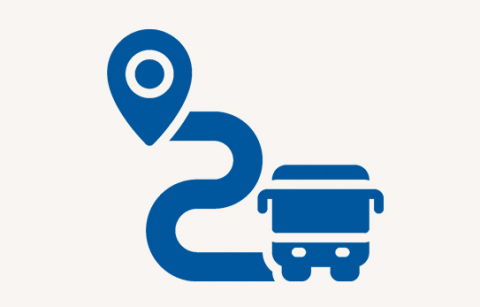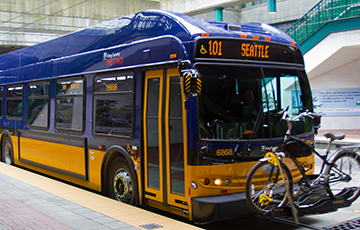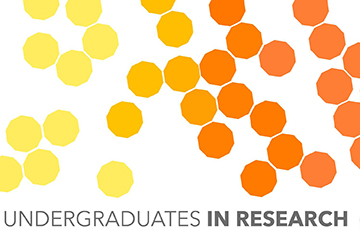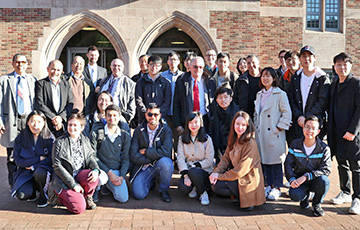
What problems are chemical engineers trying to solve in infrastructure, transportation and society?
Chemical engineers work on infrastructure-related projects that range from nanoscale processes to manufacturing plants that cover city blocks. Automakers and battery suppliers are scaling up for the future of electrified transportation; public transit and air travel are transitioning to electrical systems; resilient power grids will require new energy solutions and better batteries — and chemical engineers have a role to play in all of these major shifts. Chemical engineers are also very involved in developing, biofuels, finding efficient ways to produce renewable liquid fuel sources, and scaling up the manufacture of advanced materials and semiconductors needed to make high-speed rail more economical and available.
Customize ChemE to YOUR interests
ChemE is a cohort-based program, which means you never have to worry about when to take core classes or whether there will be space when you need it. You'll be able to focus on developing relationships with your classmates, faculty members, and advisers, as well as customizing your experience to your interests. While ChemE is a broad degree, we provide guidance to help students identify and pursue their interests while developing the strong fundamental perspective that all ChemEs bring. We encourage students to take ownership of their education to make the most of their time in chemical engineering.
All ChemE students take at least 16 credits of engineering electives. Some students choose a broad array of electives and others choose to focus most of their electives in a specific area of their interest, called an optional focus area. Here are some examples of engineering electives, areas of knowledge, and focus areas that relate to infrastructure, transportation & society.
- CHEM E 341 (3) Energy and Environment I
- CHEM E 442 (3) Renewable Energy
- CEE 307 (3) Construction Engineering
- CEE 327 (3)Transportation Engineering
- CEE 337 (3)Construction Materials
- CEE 357 (5) Environmental Engineering
- CEE 390 (3) Civil Engineering Systems
- CEE 420 (3) Engineering with Developing Communities
- CEE 462 (3) Applied Limnology and Pollutant Effects on Fresh Water
- CEE 480 (3) Air-Quality Model
- CEE 482 (3) Wastewater Treatment and Reuse
- CEE 484 (3) Decentralized On-Site Wastewater Disposal and Reuse
- CEE 487 (3) Solid-Waste Disposal
- CEE 488 (3) Hazardous Wastes Engineering
- CEE 490 (4) Air-Pollution Control
- CEE 493 (3) Air Pollution Source Testing and Equipment Eval.
- E E 215 (4) Fundamentals of Electrical Engineering
- E E 233 (5) Circuit Theory
- ME 426 (3) Renewable Energy II
All ChemE students take at least 24 credits of Areas of Impact, including at least 3 credits of DIV, 10 credits of VLPA, and 10 credits of I&S. We encourage students to consider using these credits as another way to deepen knowledge and gain a breadth of perspective on the areas of interest to them. Here are some examples of Areas of Knowledge courses that relate to infrastructure, transportation, and society.
- CEE 420 (3) Engineering with Developing Communities (DIV)
- URBDP 300: Introduction to Urban Planning (I&S)
- GEOG 277: Geography of Cities (I&S, DIV)
- GEOG 478: Social Justice & the City (I&S)
- POL S 383: Environmental Politics and Policy in the US (I&S)
- ARCH 458/ART H 494/JSIS A 433: Paris: Architecture and Urbanism (VLPA or I&S)
- CEP 200: Introduction to Community and Environmental Planning (I&S)
- ESS 202: Earthquakes (I&S)
- GEOG 476: Women and the City (I&S, DIV)
- GEOG 332: Black Feminist Geographies (I&S, DIV)
- ARCH 466: Gender and Architecture (I&S or VLPA)
A large proportion of students study abroad while earning their chemical engineering degrees for both summer and autumn quarters, with courses counting toward engineering electives and core coursework. infrastructure related programs include:
- Engineering Jordan: Water in an Arid Land
- Engineering Pacific Northwest: Sustainable Water in a Wet Region
- Engineering Italy: Water and Environment in Southern Italy
- Engineering Rome: 3,000 years of Engineering contributions to infrastructure and society
- Urban Design and Planning Berlin: The Once and Future Metropolis - Urbanization, Conflict, and Community in Berlin
- UW Bothell IAS South Korea: Urban Exploration in Busan, South Korea: Mapping Communities in the Smart City
- College of Engineering Nagoya University Summer Intensive Program (NUSIP) DIS Study Abroad in Scandinavia: Copenhagen, Denmark
Common opportunities that ChemE students participate in include:
Over 70% of BS ChemE students participate in undergraduate research while earning their degrees. Students can do undergraduate research in any engineering lab and count up to 9 credits toward engineering electives for degree requirements. Most research opportunities are not posted on the website. The best way to get involved is to read about the faculty on our research pages and email the professor you're most interested in researching with to see if they have space in their lab.
Participate in undergraduate research with a faculty member advancing infrastructure and transportation, such as Prof. Lilo Pozzo and Prof. Dan Schwartz.
ChemE faculty are on the cutting edge of research in the following areas:
- Large scale energy storage and utilization
- Energy Systems Integration
- Materials for photonic and electronic energy conversion
- Environmental engineering
- Sensing technologies
All ChemE students take a senior design course or a capstone course.
Standard option
The standard capstone option is taking CHEM E 486: Process Design II. Students work in teams to design complex systems with consideration to economic and other constraints. Examples:
- Convert Carbon-neutral electricity to liquid fuels (2016)
- Solar Cell Manufacturing Facility (2015)
- Manufacturing pathways to earth-abundant solar cells (2014)
- e-gas (2014)
Industry Capstone Program
The Industry Capstone Program brings together UW students and companies to tackle real-world, multidisciplinary engineering problems. Sponsors bring in projects from their companies and provide support to teams of creative, talented engineering students who will design and build innovative solutions.
Entrepreneurial Design Sequence
This is a three-quarter design sequence in which small teams of ChemE students research, design, and develop a business plan for a new product. Teams participate in the NW Business Plan Competition. Students receive credit for both the capstone and engineering electives. (CHEM E 499, CHEM E 497) Examples:
Nano and Molecular Engineering option
The NME option introduces students to nanoscale principles in molecular engineering, provides hands-on experience and stresses the interdisciplinary of this field. Students who complete the option have it noted on their transcript after graduation.
Optional focus areas
Students who wish to deepen their knowledge in a specific subject may pursue an optional focus area, combining engineering electives, undergraduate research, study abroad, internship, and capstone experience to create an individualized learning experience that is in-depth in a specific area. Students who complete a focus area will receive a certificate at graduation.
Many students with an interest in transportation & infrastructure pursue optional focus areas in Energy Systems or Environmental Engineering.
Career opportunities
Common employers:
- CalPortland
- Ernst & Young
- Puget Sound Energy
- King County Wastewater
- Seattle Public Utilities
- Puget Sound Naval Shipyard
- Tesla
- Lucid Motors
- Accenture
- EcoLab
- Phillips 66
- Marathon Petroleum
Common titles in industry:
- Process Engineer
- Project Engineer
- Test Engineer
- Manufacturing Engineer
- Quality Engineer
- Procurement Engineer



